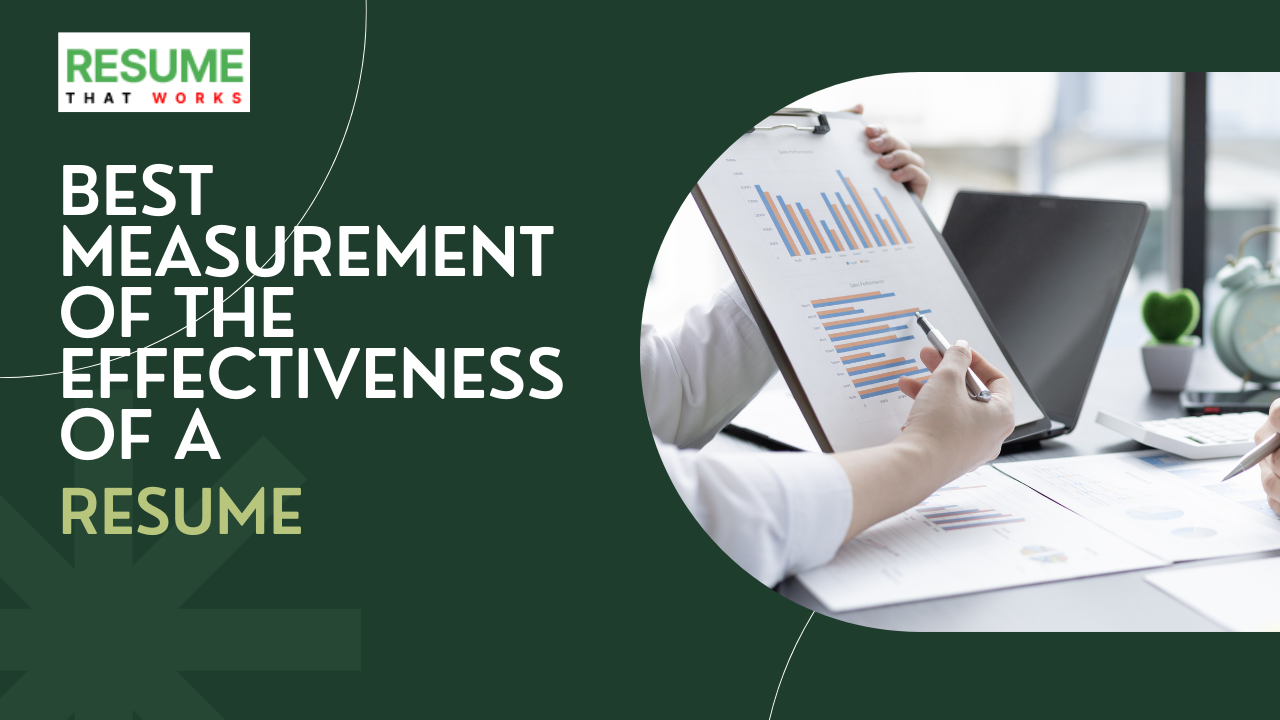A resume is a document that employees use to showcase their talents and capabilities to prospective employers. The word resume was derived from French which means “summary”. Since the most important aspect of a resume is to summarize the qualifications, experience, and skills of a professional for employers, the original meanings have not lost their application yet.
Resumes come in many forms, shapes, and sizes. Mostly, there is a trend going on in the industry whether a more elaborate and colorful resume is better or a more toned up and minimalist approach will help professionals land their dream job.
However, in this article, we will try to answer the most important question about the utility of a resume: How can we determine the effectiveness and potency of a resume?
So, if you want to know whether your resume is effective or not, read the complete article.
Is It Necessary To Determine The Impact Of A Resume?
As mentioned in the previous section, resumes come in all dimensions. Also, professionals from different industries prefer to compose their resumes in different styles. On the face of it, it could become hard to determine the worth because each expert would judge it according to his own experience and bias.
But whether it is necessary or not to gauge the effectiveness of a resume is a no-brainer. The color, font, and formatting are all the cogs and parts of the big machine. The rationale behind composing a winning resume is something bigger than the sum of all the components of a resume. That’s why it is necessary to take a critical look at your resume or get someone to do that for you.
Different Metrics That Professionals Employ
A resume consists of various types of information to highlight the candidacy of a professional for a specific role. Depending on the industry and where that professional is in his career trajectory, experts lean toward different things to measure the potency of a well-crafted and balanced resume.
In this section, we will go through some of the metrics that professionals use to differentiate great resumes from average ones.
-
Data & Metrics
As a document, it is not a surprise to expect long passages of description and jargon in the resume. For instance, in the sections where professionals may have to “describe” or “show” their competency in the relevant field, they could resort to such passages and descriptions.
On the hand, professionals resort to quantifiable data and metrics and consider it to be the backbone of a well-researched and well-composed resume.
-
Focus On Results
Many professionals highlight their candidacy and expertise by showcasing the job responsibilities and other information in this regard. Even though the rationale behind this practice is to cement competency for prospective employers, many professionals consider it to be a miss. According to them, both responsibilities and results and their representation in a resume fail to solidify its effectiveness on every level.
-
Easy To Scan
Today is the age of information technology and computer science. Businesses are heavily reliant on smart processes and operations to cut time and costs. In the hiring industry, employing Application Tracking Systems (ATS) has become a common practice.
This leads to many professionals believing that if their resumes can be scanned by both humans and these systems, it is a success.
No matter how hard they want to believe it to be true, it is still missing a point.
-
Customized For Specific Role
In the resume world, there are no instances of “one size fits all”. Professionals who have accumulated ample experience know that resumes need to be customized and fine-tuned before they are sent out for specific roles.
Still, this cannot be the absolute metric to gauge the success or effectiveness of a resume. It is because we have seen many professionals struggling even after honing resumes for every specific position.
-
Keyword Incorporation
Going back to keyword scanning and ATS, many job seekers are of the view that having specific keywords incorporated into a resume can add substantial value to their resume. Again, this is true to some extent as keywords do make the resumes stand out from the rest of the lot.
Still, it is not the ideal way to know whether a resume is working or not.
The Best Measurement To Gauge Effectiveness
After going through all of those variables and ultimately turning them down for the obvious reason, it is time to go through the real winner of the bunch.
It is something that is not explicitly written in the resume; certainly, it is not about how all the relevant information is presented in a compact and concise document.
The best measurement of the effectiveness of a resume is its ability to land interviews for the bearer. No matter how many flowery phrases or metrics a professional use in his resume, his resume needs to get callbacks and interview invitations for him. This is hands down, the ultimate gauge to measure the effectiveness and potency of a resume.
But how does one make his resume achieve that?
It lies in the subtle balance of all the variables and components of a resume mentioned in the above sections. The idea is to replenish each section in such a way that it can not only stand on its own but also elevate other parts of it.
Ultimately, a great resume catches the attention of a recruiter which leads to interviews and hiring.
Summing It Up
A resume can be the key to your dream role. That’s why it should be composed with utmost care and research. Experts suggest that a resume is as good as the sum of its parts. Job seekers must take a critical look at their resumes from time to time and even ask peers to evaluate them. If a resume is not fetching callbacks and interview invitations, it is best to get back to the drawing board and tweak its parts for better results in the future.
Hiring a professional resume writing service can be a great option in this regard as they have the personnel, tools, and expertise to fine-tune your resume for the next big role.




